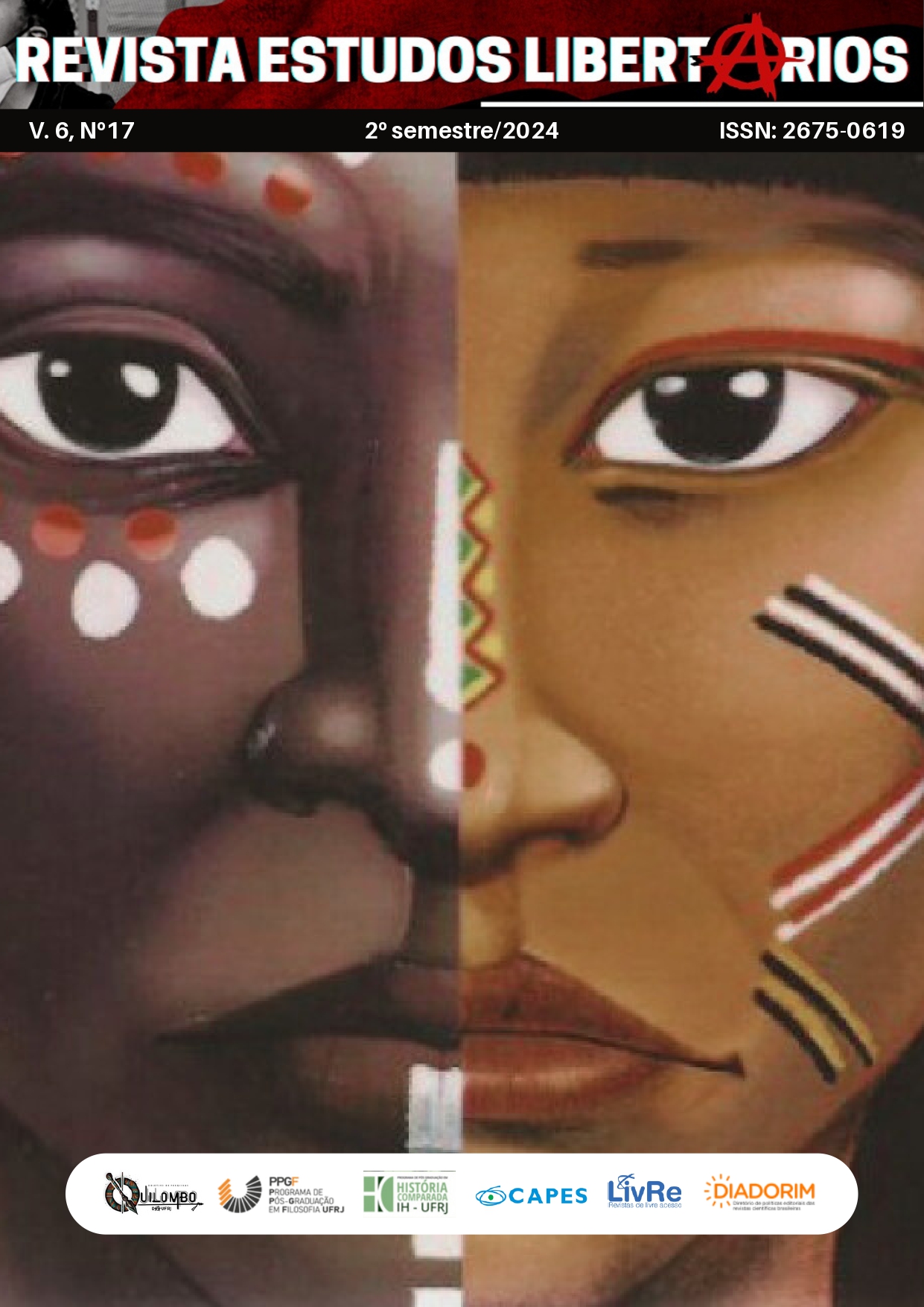Os Jangadeiros Libertos e o Caldeirão da Santa Cruz do Deserto
Movimentos de um Nordeste Negro Insurgente
Abstract
The historicide of the autonomous struggles of black people and native peoples in the Brazilian Northeast leaves us unaware of their revolts, insurgencies and forms of resistance. In addition to being white-centric, the interpretation of ethnic-racial conflicts in Brazil produced a hierarchy of knowledge that favors the histories of states in the southeast region, outlining a complicated geopolitics of knowledge about the formation of the country. This article is an introduction to two episodes of black insurgency fought in Ceará and their respective characters. Starting from the contributions of black intellectuals such as Abdias Nascimento (1985), Clóvis Moura (2021), Flávio Gomes (2015) and Wallace de Moraes (2021), who offer a critical view of history and the need to understand the racial issue as being central to understanding the formation of the country, I analyze the action carried out by freed blacks who, through associations and temporary alliances with whites, created the freedmen's club and led the strikes that prevented the slave trade that became known as the “strike of the jangadeiros”; and also the community of Caldeirão da Santa Cruz do Deserto, which existed between 1894 and 1936. First, I present some aspects that make the freed jangadeiros a relevant movement in the history of black popular struggles in slave-owning Brazil. Afterwards, I try to identify the arguments that culminated in what I call the deracialization of black people in Norheast. Finally, I make a racialized reading of Blessed José Lourenço and the community of Caldeirão da Santa Cruz do Deserto, situating it as an experience between self-management and quilombism in the post-abolition period.
Published
Issue
Section
License
Copyright (c) 2024 Revista Estudos Libertários

This work is licensed under a Creative Commons Attribution 4.0 International License.
Autores que publicam nesta revista concordam com os seguintes termos:
1) Autores mantém os direitos autorais e concedem à revista o direito de primeira publicação, com o trabalho simultaneamente licenciado sob a Licença CreativeCommonsAttribution que permite o compartilhamento do trabalho com reconhecimento da autoria e publicação inicial nesta revista.
2) Autores têm autorização para assumir contratos adicionais separadamente, para distribuição não-exclusiva da versão do trabalho publicada nesta revista (ex.: publicar em repositório institucional ou como capítulo de livro), com reconhecimento de autoria e publicação inicial nesta revista.
3) Autores têm permissão e são estimulados a publicar e distribuir seu trabalho online (ex.: em repositórios institucionais ou na sua página pessoal) a qualquer ponto antes ou durante o processo editorial, já que isso pode gerar alterações produtivas, bem como aumentar o impacto e a citação do trabalho publicado (Veja O Efeito do Acesso Livre).
POLÍTICA DE PRIVACIDADE
Os nomes e endereços informados nesta revista serão usados exclusivamente para os serviços prestados por esta publicação, não sendo disponibilizados para outras finalidades ou a terceiros.


